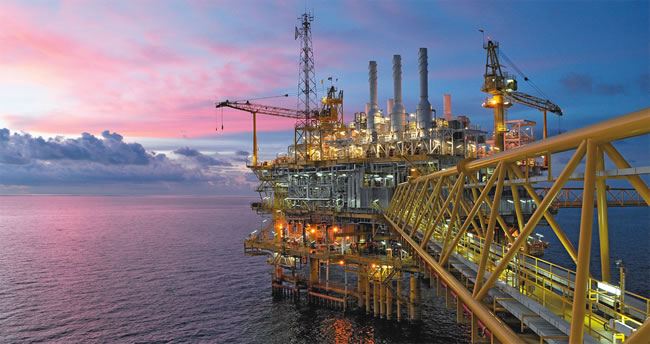Adetola Bademosi periscopes the administration of oil and gas sector under President Muhammadu Buhari in the past eight years.
President Muhammadu Buhari, at the recently concluded 6th Nigeria International Energy Summit (NIES 2023) in Abuja with the theme: Global Perspectives for a Sustainable Energy Future, said his performance in the energy sector is unprecedented.
While recounting his achievements in the oil and gas sector, he listed the Petroleum Industry Act (PIA) as his greatest achievement.
Buhari, who spoke through the Secretary to the Govrnment of the Federation, Mr. Boss Mustapha, had said that upon assumption into of office in 2015, his administration’s core mandate was to embark on major reforms in the sector.
“The Petroleum Industry Act (PIA) remains our second biggest achievement in the energy sector. For decades, we were told that because of various vested interests, it would be nearly impossible to pass the bill but we made it happen,” said Buhari.
He wasted no time in listing out the achievements which included the $2.8 billion Ajaokuta–Kaduna–Kano (AKK) natural gas pipeline project, declaration of January 1, 2021 to December 31, 2030 as Nigeria’s ‘Decade of Gas’ among others.
“We have also reinvigorated the private sector in the industry. We ensured an attractive framework for the indigenous companies to take advantage of divestment by International Oil Companies’ (IOCs) assets. This move ensured that the indigenous companies grew their capacity tremendously and they are now accountable for about 30 per cent of national oil and gas production up from just about 2 per cent in 2010.
“We implemented a marginal field bid round and saw to the conclusion of the process which resulted in the award of Petroleum Prospecting Licenses (PPLs) to 161 successful firms with the federal government raking in about N200 billion as well as $7 million from the process,” he added.
However, the President was silent on the issue of subsidy which is undoubtedly a major concern. The dwindling revenue from the sector as well as oil theft and the need to fix the country’s refineries have been subjects of national discourse.
Although the President had listed the PIA as a major achievement of his administration, the government has severally failed to implement provision for removal of subsidy.
Labour unions have also on several occasions countered the Federal Government’s plans to remove subsidy without first putting the country’s refineries back upstream.
In March 2021, the administration approved $1.5billion to fix the PortHarcourt refinery, followed by another $1.5billion approval for rehabilitation of Kaduna and Owerri refineries.
Despite these, none of the refineries is functioning yet. For the PortHarcourt refinery, the erstwhile Minister of state for Petroleum Resources, Timipre Sylva in January 2023 assured that the 60,000mbd part of the refinery would be completed by the first quarter of the year, but the government has again failed to meet its target.
This is one of many issues bedeviling the sector.
Industry Experts Express Mixed Feelings
Industry experts have however, expressed diverse opinions regarding the shortcomings and achievements of the outgoing administration in the last eight years.
Oil and gas analyst, Mr. Bala Zakka, on his part opined that conducting a comparative analysis of issues in the sector in the last eight years and now would provide answers.
“How many drilling rigs did we have at that time and how many do we have now?what has been the state of our refineries at that time and what is it now? What was the cost of diesel or distillates generally refined petroleum products that time and what is it now? What has been the impact of the PIA? what has been the investment of International Oil Companies and our local companies , what was the volume of investment then and now?
“What was the state of oil infrastructure vandalism then and now? It is just to do a comparison of then and now. As far as I am concerned, I will not give them any pass marks,” he said.
According to him, energy cost has eaten up investments especially for diesel adding that businesses are finding it difficult to keep up with the cost.
“The cost of diesel is very high now. Many of these oil companies that you are seeing, forget that they are also operators, all those big vessels you see run on diesel and some of them need to keep hundred thousands liters of diesel because when they are in the deep offshore, you cannot be operating with less than 30,000 litres of diesel because anything can happen and the whole system will collapse. They are always having tens of thousands liters of diesel to stay afloat.
“All that equipment, the vessels, drilling rigs, drilling ships, and everything else is running on diesel at the rate of N700 to N800 per litre. Imagine how this eats into their cost of energy. Energy cost is a huge cost today. Many banks today open at 8am and close by 2pm or 3pm. One of the major reasons is the cost of diesel. That is why you go to some ATMs at night but they are not working because they cannot afford to run on diesel generators all through the night.
“The only thing they do sometimes is that at the back, they will have a petrol generator connected to the ATM machines. So just imagine what will happen if they remove subsidy on the price of petrol.”
On his part, Michael Faniran, an oil and gas policy analyst said the administration made some landmark achievements which were commendable.
He said, “For me, I think it is a mixed feelings. The biggest impact he has made is the Petroleum Industry Act(PIA) whether it is perfect or not, this is something a lot of government has not been able to achieve in 20 years. So that single achievement is a very great one. The other one is in the area of gas, the decade of gas programme. No matter how flawed it is, it think it is a good one. Even before the PIA, the deep offshore Act, the production sharing signed I think is a major achievement. It is something the incoming government needs to build on.
“However, not removing the subsidy in the downstream sector cast a lot of stains on the achievements because I think that is one key thing that would have eliminated a lot of corrupt practices because this is the government that came to power to eradicate corruption. So I think subsidy was one major thing that couldn’t bite the bullet. They had a lot of opportunities to remove the subsidy especially the time when the crude oil price was very low, I think it was a very good opportunity that was missed. That was not done and I think the will to see to a logical implementation was not there. So, it is still business as usual in the oil and gas industry, we have not been able to increase our production quota as such but those ones I have mentioned stood up as part of what he has achieved. But for me the big one and a disappointment is not being able to remove the fuel subsidy.
READ ALSO FROM NIGERIAN TRIBUNE






